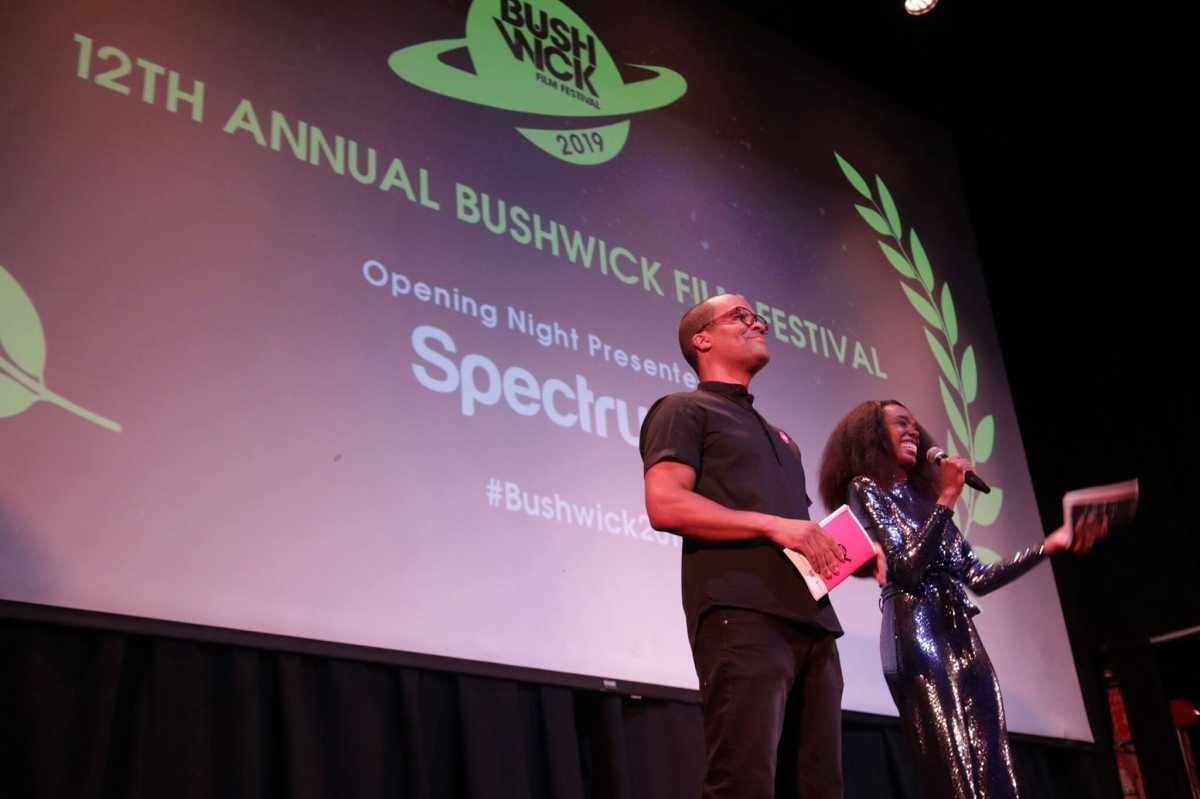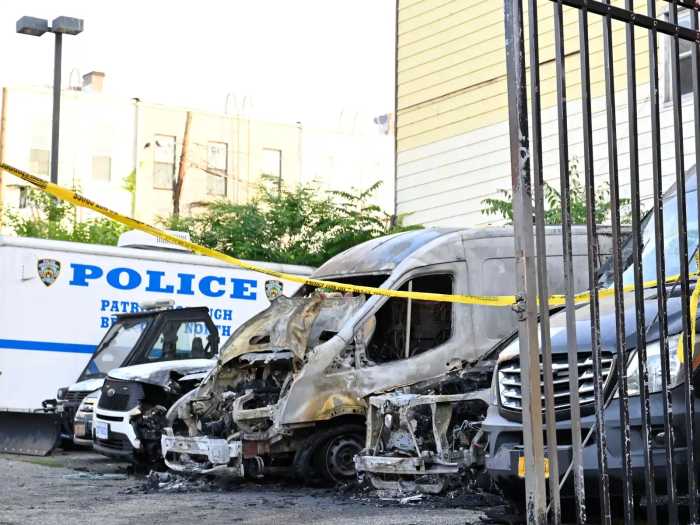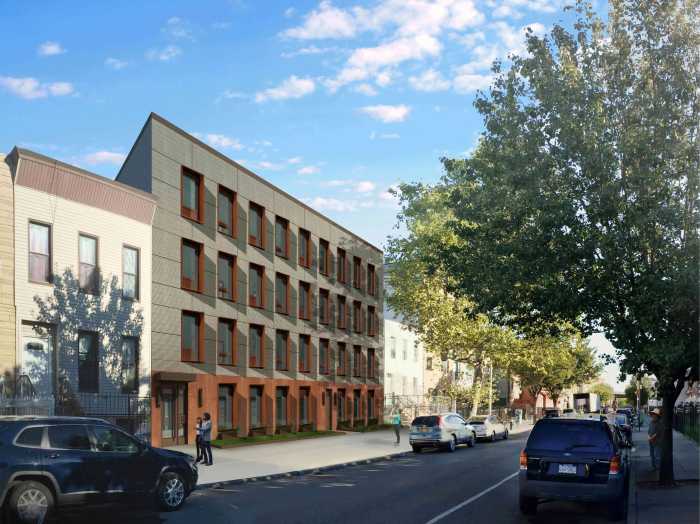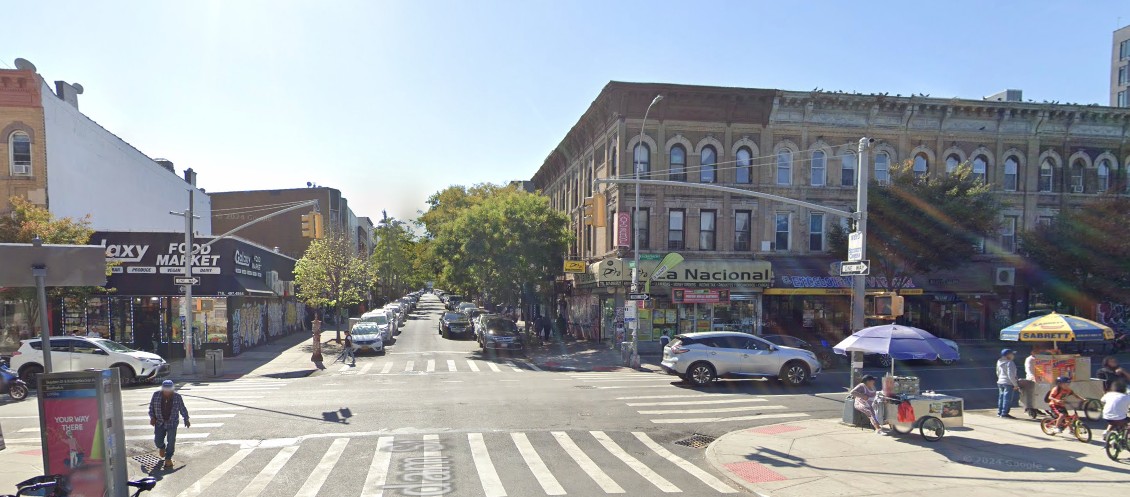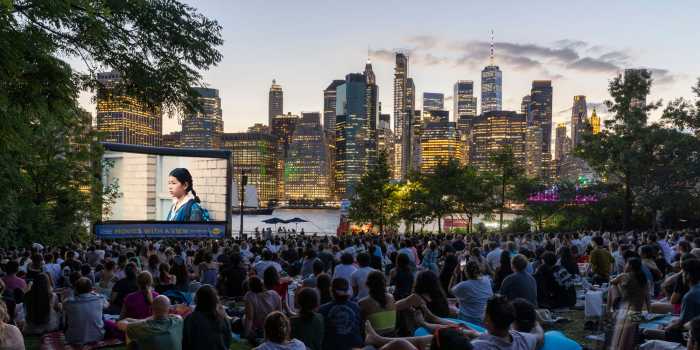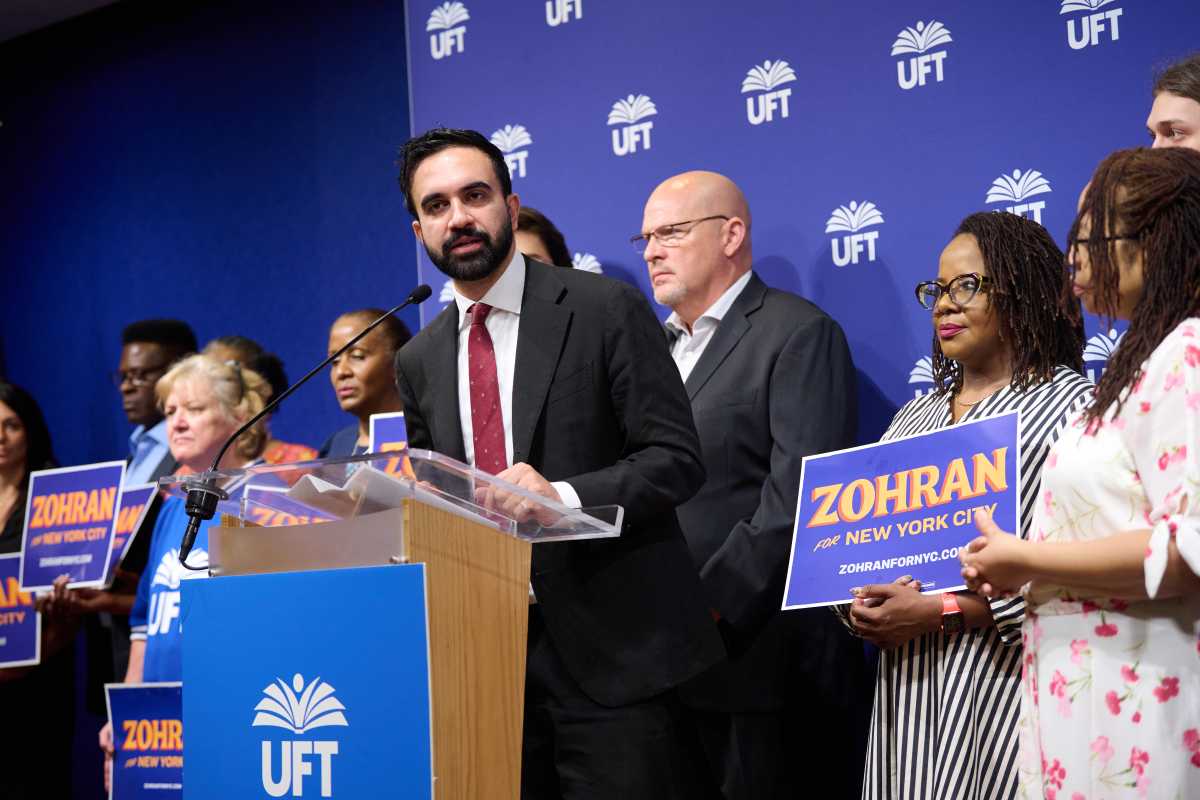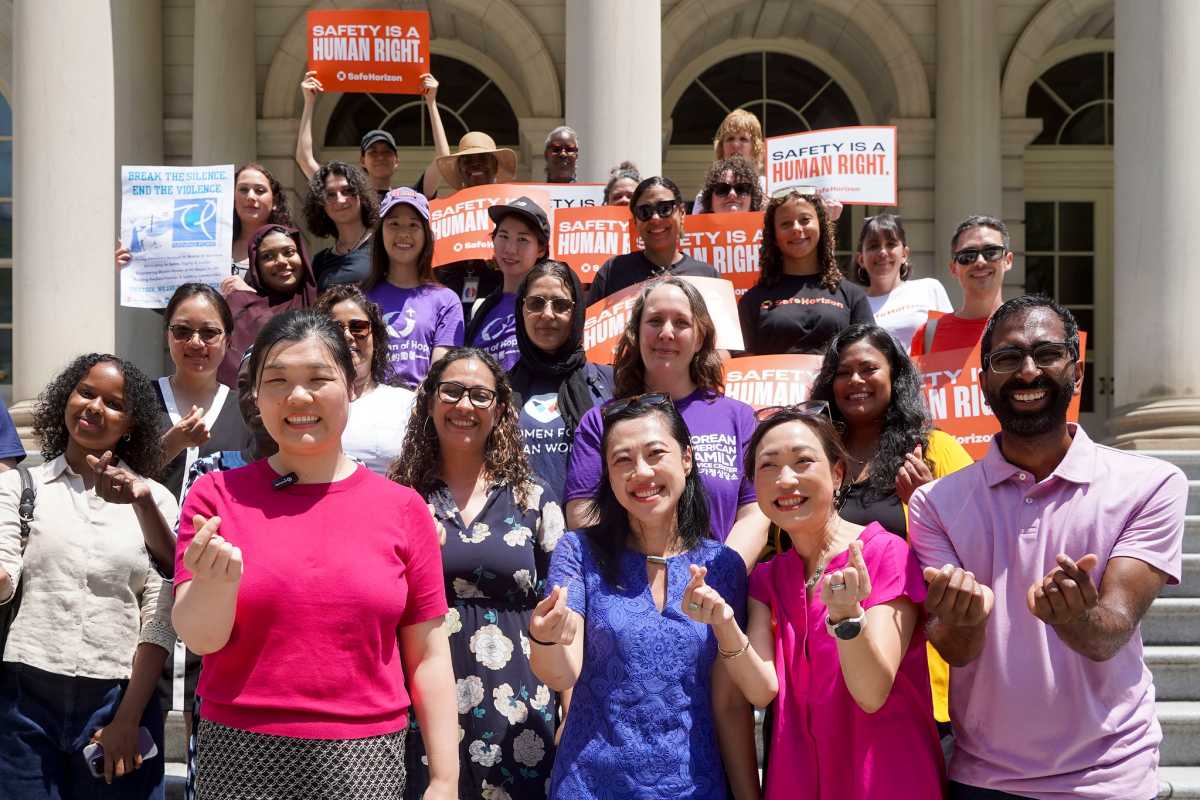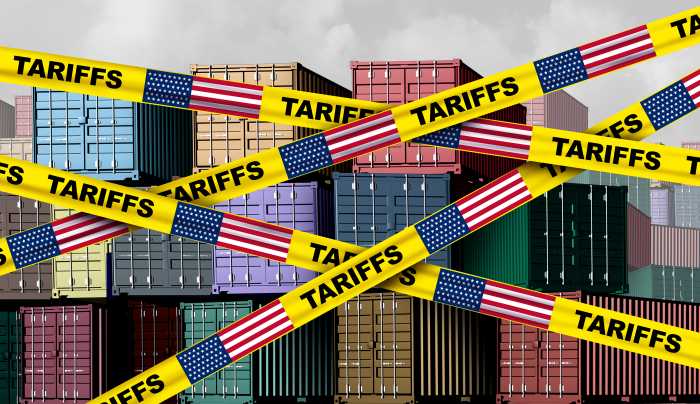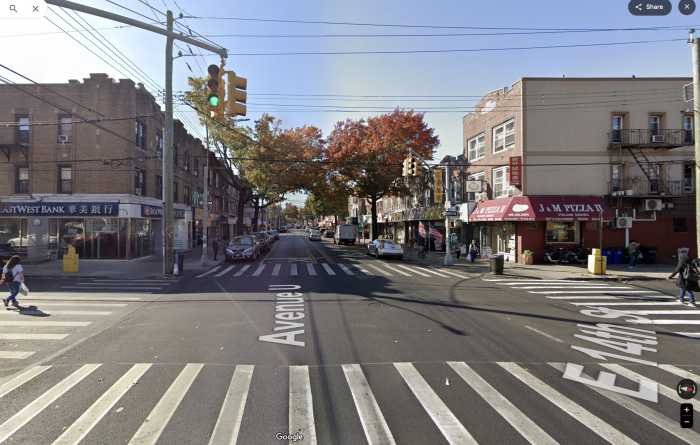Brooklyn film buffs can delight this week as the Bushwick Film Festival returns from Oct. 20-24 with a menu of in-person and online events a year after the annual arts celebration was moved entirely online.
The festival, started in 2007 by Kweighbaye Kotee, a Brooklyn-based filmmaker and former member of Brooklyn Community Board 4, has grown from humble beginnings — attracting thousands of attendees and film submissions from all over the world — even when movies were being streamed in people’s living rooms rather than on the silver screen.
“The virtual experience was really fun, too, we had an exciting year,” Kotee said. “So many people jumped in to support us, to be a part of it.”
Last year, more than 5,000 people watched new films and attended panels virtually, and the festival had a higher number of volunteers than usual, she said. The festival was also able to snag high-profile panelists, like Simon Meyers, a producer of the Emmy-winning miniseries “I May Destroy You,” who otherwise wouldn’t have been able to attend.
Once you’re in, you’re in, she said, so the festival will be able to call up the connections they made online as they plan future events. This year, BFF alumnus and “Judas and the Black Messiah” director Shaka King sent in a video to welcome attendees to the online portions of the festival.
Networking virtually was a benefit, but one thing the online festival couldn’t replace was the experience of watching a film live in a theater — especially if it’s one you directed.
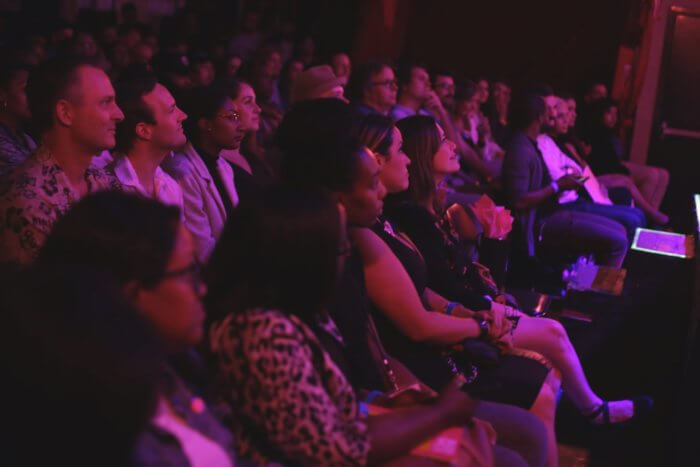
“One of our filmmakers said this recently, he said the filmmaking experience is really isolating,” Kotee said. “Especially if you’re an editor or producer, normally, you can’t wait for the premiere in front of an audience, you get to see the feedback, get to see the audience experience your story. We’re just very excited to be able to offer that again to filmmakers, and offer that to audiences, and also experience it for ourselves.”
“A part, for me, that’s very priceless, is when I do see the filmmaker sit and watch a film with other people,” she said. “It’s just a special moment that was obviously very missed.”
The festival team thought about going fully virtual again this year — but as restaurants and other indoor events started up again, with proof of vaccination, Kotee realized they could move to a hybrid festival.
“We just decided, okay, instead of having four or five days of live events, let’s take a little small step toward a small festival,” she said.
They partnered with Regal Cinemas — “a godsend,” Kotee said, because many of their usual venues are still trying to recover from the past year — and are hosting a full day of live screenings on Oct. 23 in their Court Street theater.
All week long, more than 100 feature-length and short films will become available to watch online, and filmmakers will take questions in virtual panels available on the festival’s website. The festival also partnered with the City Artist Corps to host a free screening of “Rehab Cabin” happening Saturday afternoon.
Dozens of writers and directors featuring in this year’s festival are Brooklyn-based. Director Alexandra Henry’s first feature-length documentary, “Street Heroines,” goes live online on Wednesday, while Ian Forster’s 16-minute documentary about writer and filmmaker John Akomfrah kicks off Saturday’s day of live screenings.
Some of the films come even closer to home. Bushwick’s community fridge slowly comes into focus in the teaser trailer for Gareth Smit’s short “Give and Take,” which documents several of the community-based miniature food pantries across the city.
Kotee was particularly excited about “Have a Nice Life,” directed by Prashanth Kamalakanthan.
“It’s like a female road movie,” she said. “It was just like, a really cool take on the traditional American road movie but with a lot of diversity and different perspectives.”
BFF is offering an all-new virtual experience, too. For the first time, the festival accepted non-fungible token videos and has created “The Metaverse,” a virtual venue for guests to explore from their own homes.
Rah Crawford, the festival’s creative director, premiered “Neo Now,” which chronicles his journey with blockchain and discusses the technology’s future in the arts, at the 2018 festival.
“This is like, I would say, an appetizer,” he said. “This is the introduction, and then in following years we’re adding NFT short films, narratives, as an actual award category.”
In addition to giving people attending the festival a cool introduction to NFTs, he said, it’s important for filmmakers and creatives to stay ahead of the next big developments in the arts.
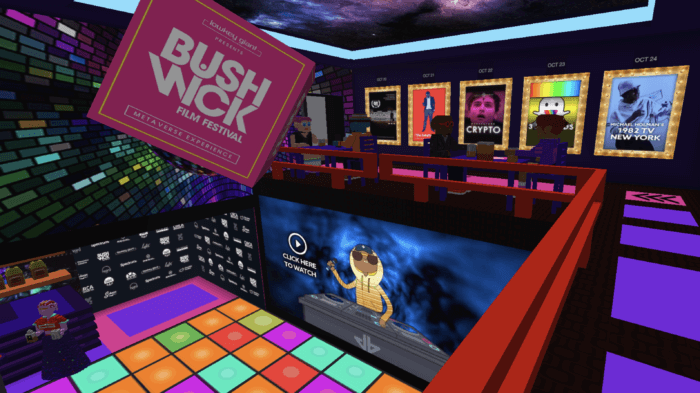
“There’s really going to be two festivals in different dimensions,” Crawford said. “We’ll have the main Bushwick Film Festival that we all know about. But at the same time, in this other dimension, in the crypto space, in the Metaverse, you’ll be able to visit and move around this completely different world, see artwork, see short films, entertainment with a whole different roster.”
For Kotee, the festival represents more than just the return of live screenings and industry events. During the pandemic, BFF partnered with Pace University on a study of diversity in film festivals — and found that only 12 percent were led by women of color.
“When you think about film festivals, they are really important to finding the next big storyteller, and how it’s also important for film festivals and their founders and their leaders to be diverse,” she said. “In the fight to make Hollywood diverse, film festivals are really one of the doors into the next step of Hollywood.”
The Bushwick Film Festival runs online and in person Oct. 20-24. You can find tickets, event schedules, and screen movies on their website.


